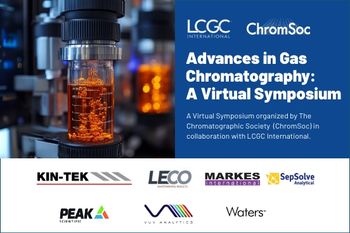
No-Code Automation to Advance Sample Preparation
In a new study, scientists introduced no-code automation as a strategic response for addressing talent shortages in the chemical industry.
Scientists from the Institut für Umwelt & Energie, Technik & Analytik in Duisberg, Germany and the University of Duisburg-Essen in Essen, Germany published an article in the Journal of Chromatography A on no-code automation to better create sample preparation procedures (1).
The chemical industry is one of many sectors currently experiencing a vast shortfall of skilled labor. Two primary factors are largely contributing to this trend; a demographic shift in age, which has led to discernible depletion of the qualified labor pool in various countries, and inadequate levels of students enrolled in STEM (Science, Technology, Engineering, and Mathematics) disciplines. According to FutureEd, approximately 34%of the American eighth grade population was on track to pursue advanced math in high school and a potential future career in STEM. However, after the pandemic, in 2022, only 27% were well prepared for such a life path (2).
These factors have resulted in a lack of trainees to replace the retiring Baby Boomer generation in the chemical industry. One means of addressing the shortage of work is amplifying process automation. Automation is already prevalent in sectors like plastics and metal process or the automotive industry, where manufacturing follows a repetitive nature. The pharmaceutical and chemical industries are also moving towards this direction.
In this study, the scientists introduced no-code automation as a strategic response for addressing these talent shortages. No-code is a method of building software applications without using programming languages (3). Instead of writing code, one can use tools that offer features in a graphical interface for fleshing out an application’s functionality. The platform in this study was used to automate a complex high-performance thin-layer chromatography (HPTLC) assay. With this approach, laboratory personnel to configure and modify workflows without needing specialized programming skills. The manuscript outlines the deployment of a collaborative robot (cobot), a programmable logic controller (PLC), and the utilization of self-developed open-source hardware components to establish automated stations for sample handling, incubation, spraying, detection, and storage within the assay process.
Through a drag-and-drop approach, the no-code paradigm allowed for workflow orchestration, robotic manipulations, and detector operations. This approach makes it feasible to execute and dynamically modify complex automation processes within a laboratory setting by domain experts lacking formal engineering or programming backgrounds. This also enables future modification; for example, using the presented approach, one could potentially integrate level sensors in the HPTLC bath in combination with pumps for automated refilling. Further, the requisite components for the operational stations of the assay were assembled with cost-effective materials, which adequately met the functional requirements in spite of their economic efficiency. A better solution would be making external systems robot-accessible by the manufacturer, since this would lead to stations not having to be developed in-house, but rather integrated into the workflow via plug and play. As it stands, the current system has shown its promise, hinting at a bright future for enhancing laboratory automation efficiency and interoperability.
References
(1) Kochale, K.; Boerakker, D.; Teutenberg, T.; Schmidt, T. C. Concept of Flexible No-Code Automation for Complex Sample Preparation Procedures. J. Chromatogr. A 2024, 1736, 465343. DOI:
(2) Barshay, J. How Covid Shrunk Enrollment in STEM Courses. FutureEd 2024.
(3) What is No-code and No-code Automation? The Full Mini-guide. Make 2023.
Newsletter
Join the global community of analytical scientists who trust LCGC for insights on the latest techniques, trends, and expert solutions in chromatography.





